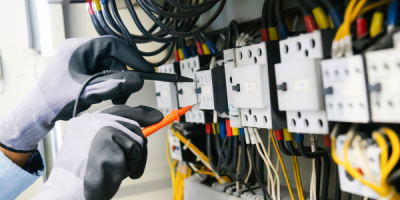
Realising the resource
We completed this ground-breaking and major three-year multi-partner project ‘GB Electricity demand – realising the resource’ in late 2014. With an over-arching customer and consumer focus, this project involved a systematic look at the policies, regulatory approaches and commercial issues for development of an active demand-side in the GB electricity markets.
The Sustainability First project on GB Electricity Demand began in April 2011. It was supported in its first year under a Northern Powergrid Low Carbon Network Fund project - and thereafter for a further two years to April 2014 via a multi-sponsor group.
The project aimed to identify the potential resource which the electricity demand side could offer into the GB electricity markets through demand response and through demand reduction. The project aimed to:
- Evaluate and understand the potential GB electricity demand-side resource across all economic sectors (including the role of distributed and micro-generation);
- Develop a clearer understanding of the economic value of this resource to different market actors and to different customers out to 2025; and
- Evaluate the key customer, consumer, commercial, regulatory and policy issues and interactions.
The project developed a substantive knowledge-base, and provided visibility and thought-leadership for GB electricity demand-side issues.
The project undertook work relevant to:
- GB smart meter deployment
- Low Carbon Network Fund and Network Innovation Competition projects – emerging lessons and insights from the LCNF projects were fed into the project
- Proposals for the electricity demand-side (DSR and electricity demand reduction) in Electricity Market Reform.
The work programme was delivered through the Smart Demand Forum, through wider stakeholder events, and through thirteen published papers. The project was run by Sustainability First. The Sustainability First team was Judith Ward, Gill Owen, Rebekah Phillips, Sharon Darcy and Clare Dudeney.
Additional expertise and inputs were provided by Serena Hesmondhalgh of Brattle Group, who developed a quantitative all-sector demand model. Stephen Andrews supported the project on Distributed Generation and Micro-Generation. We collaborated with Frontier Economics on a paper on electricity demand-side innovation.
Key themes for the project included:
Customer Response and Consumer Issues – A key focus for the project was to understand successful and cost-efficient demand-side participation from a customer and consumer perspective (household, industry, commercial and public sectors). This included experience provided through the LCNF trials (e.g. tariffs, remote control of appliances, technologies such as micro-generation, electric vehicles etc.) and other similar initiatives in the UK and elsewhere. For households, this included any particular issues for the fuel poor and potential distributional impacts.
Commercial - Practical realisation of demand-side services - given different roles and requirements in the value chain. Issues included: the nature of commercial frameworks, the role of third parties(DNOs, ESCOs, aggregators), the kind of information-sharing likely to be necessary between parties etc. – drawing from practical experiences of the LCNF Trials and other developing experience in the UK and elsewhere.
Regulatory – near and longer term regulatory factors which impact upon development of an active electricity demand-side for Great Britain – including current agreements between market actors, statutory codes, incentives in price controls, settlement, and third-party requirements. This included experiences within the LCNF trials and other thinking on innovation incentives.
Public Policy Issues – likely economic value and potential contribution of the demand side to: cost-efficiency across the electricity sector; security of supply; carbon-emission reductions. Business models, approaches and incentives for integrating the demand side into the electricity market, including its interactions with Electricity Market Reform, smart meter roll-out and energy efficiency schemes.
The project also drew upon relevant information from demand side developments in other countries (notably the EU, US and Australia) to inform its work.
Project Partners
BEAMA; Consumer Futures; British Gas; EDF Energy; Elexon; E-Meter Siemens; E.ON UK; National Grid; Northern Powergrid; Ofgem; Scottish Power Energy Networks; UK Power Networks; Vodafone.
The work was coordinated through a Smart Demand Forum whose participants also included a number of key consumer bodies: Energy Intensive Users Group, Consumer Futures, Which?, and National Energy Action together with DECC, plus the sponsor group members.



